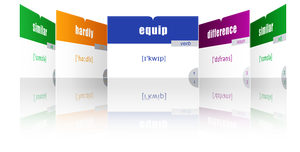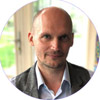Тест за 2007г. по ЕГЭ. Английский язык (Ответ)
- Подробности
- 10561
 |
||
| Прочитайте текст. Заполните пропуски в предложениях под номерами В4-В11 соответствующими формами слов, напечатанных заглавными буквами справа от каждого предложения. TEST 01 (part 1) |
Albert Schweitzer, a Nobel Peace Prize Winner
|
B4 |
Albert Schweitzer is known throughout the world for his missionary work in Africa. He was born on January 14, 1875 in Alsace, which was part of Germany and later Part of France after World War I. (степень сравнения) |
Late |
|
B5 |
He was a talented person. By the age of thirty, he had been known as an author, a lecturer, and a musician. (past perfect passive, т.к. до определенного события в прошлом, что то было завершено, сделанно ) |
Know |
|
B6 |
It was at this time that he learned of the great need of medical doctors in Africa. He decided to become a doctor of medicine. In 1913, Doctor Schweitzer and his wife left for Africa. (past simple, т.к. говорится о конкретном событии в прошлом) |
Leave |
|
B7 |
The morning after the Schweitzers arrived, they started to treat their patients in an old farmhouse. However, a new hospital building was built with the help and the trust of the African people. (past passive, т.к. мы говорим о конкретном времени в прошлом) |
Build |
|
B8 |
Their work was interrupted by World War I. Only in 1924, Dr. Schweitzer was finally able to return to Lambarene to rebuild the hospital. When Mrs. Schweitzer came back to Africa in 1929, the hospital was much larger. (степень сравнения) |
Large |
|
B9 |
In 1953 Dr. Schweitzer was given the Nobel Peace Prize. (past passive, т.к. мы говорим о конкретном событии в прошлом) |
Give |
|
B10 |
He was grateful, but said, “No man has the right to pretend that he works enough for the cause of peace or declare himself satisfied.” (present simple, т.к. это общее утверждение) |
Work |








 Как правильно изучать английский язык по карточкам (статьи)
Как правильно изучать английский язык по карточкам (статьи)